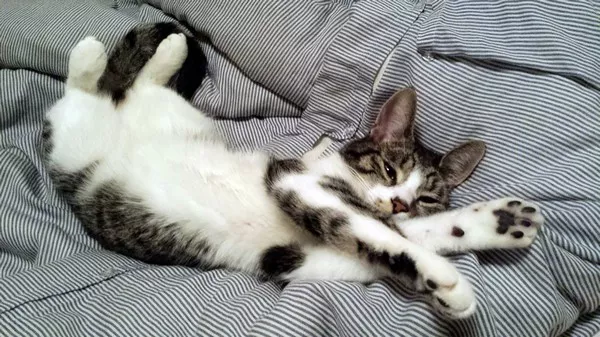The British Columbia Society for the Prevention of Cruelty to Animals (BC SPCA) has intervened in a distressing case of neglect, seizing 18 cats and two kittens from a residence in Delta. The organization cited overwhelming conditions and concerns for the welfare of the animals as the primary reasons for the seizure.
According to Eileen Drever, senior animal protection officer at BC SPCA, the home where the cats were found was deemed unsanitary, with pervasive odors of ammonia and feces reaching alarming levels. Drever described the scene, noting piles of feces as high as five inches in certain rooms, overflowing litter boxes, and furniture soaked in urine.
Upon removal from the premises, the cats were assessed for veterinary care, revealing several underlying health issues including diabetes, fever, cysts, and dental problems. Despite their challenging circumstances, Drever remarked on the cats’ resilience and affability, noting that they displayed friendly behavior despite their ordeal. Notably, one of the cats exhibited a unique trait of “smiling” when vocalizing, adding a touch of charm to their personalities.
The BC SPCA emphasized the significance of their intervention in alleviating the distress of the rescued cats, acknowledging the challenging and costly nature of seizures of this magnitude. The organization also highlighted the increase in surrenders and seizures of cats witnessed in the early months of the year, reflecting a concerning trend in animal welfare.
In this particular case, BC SPCA clarified that no charges would be recommended against the owners. Additionally, the organization did not specify a timeline for the adoption of the rescued cats and kittens, emphasizing the need for thorough assessment and care before placement into new homes.
As the BC SPCA continues to prioritize the welfare of animals in distress, this incident underscores the importance of vigilant oversight and intervention in cases of neglect and cruelty. The organization remains dedicated to providing compassionate care and finding suitable placements for animals in need, advocating for their rights and well-being.























